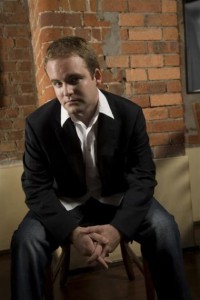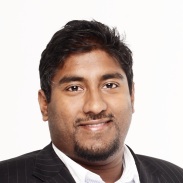![]()
Many innovation hubs have been proposed around the world, ostensibly modelling themselves on Silicon Valley. There have been successes, but most peter out. Silicon Cape, launched on 8 October 2009 in Cape Town, hit all the right notes.
The key element in any start-up hotspot, explain Silicon Cape Initiative founders Vinny Lingham (himself a successful startup veteran) and Justin Stanford (who runs a venture capital firm), is people, not buildings. The question, they say, is not what you build, or how you build it, but how you attract the right people to a place so that the start-up ecosystem — smart innovators and risk-takers, angel and venture capital funders, top-class university and private research establishments, and a stimulating living environment — can take root and become self-sustaining.
If people are the measure by which potential should be measured, then the launch of the Silicon Cape Initiative was a great success. Not only did it attract a large, enthusiastic crowd of serious idea geeks and even more serious money men, but it also secured high-quality sponsorship from several big financial firms and venture capital funds.

The speaker line-up was the clincher, however. Besides the founders themselves, it consisted of a Silicon Valley venture capital legend, South African Laurence Olivier, a cynical Andrea Bohmert from Hasso Plattner Ventures, a bold and incisive Johann Rupert, chairman of Richemont, an enthused and determined Mamphela Ramphele, chairperson of the Technology Innovation Agency, and Helen Zille, a driven premier in good form on the day.
“When we look back in 10 years, this will have been an historical gathering,” said Zille. “It’s not often that I get the real buzz that I had today.”
She pointed out the importance of getting the right people in government involved, and named Ramphele in particular as someone whose bold expressions of support could prove invaluable.
Among the key barriers identified at the launch were restrictions on moving both financial and intellectual capital into and out of the country, high regulatory burdens and taxes on companies, harsh penalties for business failure, and, as Ramphele freely admits, a school and higher education system that doesn’t deliver.
Many were listed by a relentlessly cynical Bohmert, who made sure that any starry-eyed members of the audience understood very clearly the extent and severity of the challenges, both external in the form of legislative environment, and within the industry in the form of inadequate skills and under-developed funding ecosystems.
Ramphele and Zille spoke last, after hearing from all the others. Creditably, and to the great appreciation of the audience, both were present from the start of proceedings, at the unusually early hour — both for Cape Town and for geeks — of 8am. They could often be seen conferring on points raised by the speakers. Besides business problems and regulatory barriers, they also heard bold challenges, such as the call by Johann Rupert to make the Western Cape a free economic zone.
Ramphele gave a short, but very pointed speech, referring directly to issues that were raised during the morning. “The most important thing,” she said, “is that government must create an enabling environment, and tackle the regulatory barriers. I can’t believe that we can’t sell to people who pay in dollars. How stupid is that? How can we grow our economy?”
She elicited a rousing ovation, as, later, did Zille, when she concluded her talk by declaring: “I’ll keep on this. I’ll get more involved. I’ll tweet more than I do. I’ll help build this. Afri-Can.”
Rupert’s presence was, according to sources close to the organisers, a direct result of the participation of Zille and Ramphele. He said, when he called for tax incentives and a free economic zone, that he had discussed the notion with senior ANC officials. Our sources tell us not only that “senior” means “cabinet-level”, but also that the Silicon Cape Initiative was specifically mentioned.
Much of the discussion during the day centred on familiar issues, such as fostering product management skills among entrepreneurs, creating angel investor networks, and developing a more mature cycle of angel, seed, and venture capital funding. Rupert added that the future prosperity of SA and elimination of poverty is dependent on moving beyond exporting resources or manufactured goods, to exporting intellectual property.
However, there was a strong sense after Rupert, Ramphele and Zille spoke that it was government-level participation and support that would prove to be the critical factor. Only government can create the right legal and regulatory environment to lure successful expatriates back to SA, stimulate direct foreign investment in local startups, and promote a productive interaction between universities, entrepreneurs and investors.

“Start-ups beget start-ups,” emphasised Lingham. He spoke in large part from his own experience with Clicks2Customers, which by its success spawned the money and people for half a dozen more recent start-ups. “Start-ups create opportunities for employees, who, when a company is successfully founded, developed and sold, often go on to become founders themselves. The secretary of Netscape got US$1m with its [listing]. The only story like that in SA is Mark Shuttleworth’s Thawte. But one story in 10 years just isn’t good enough.”
The Silicon Cape Initiative has made a big impact, and not only on the community of investors and entrepreneurs it serves, and to whom it now belongs. If the influence Stanford and Lingham appear to have earned in government circles proves the key to success, the future of the Silicon Cape could hold many more success stories like those of Shuttleworth and Lingham. — Ivo Vegter, TechCentral
Subscribe to our free daily newsletter
- Cape Town image credit: Deon Maritz




